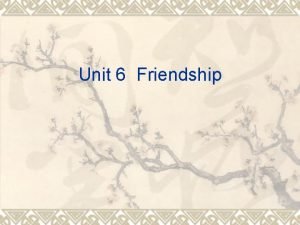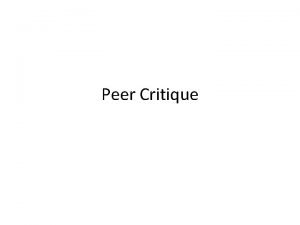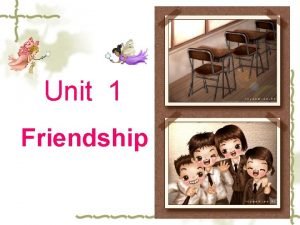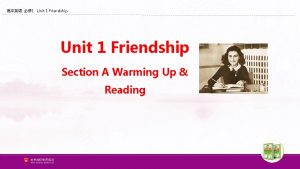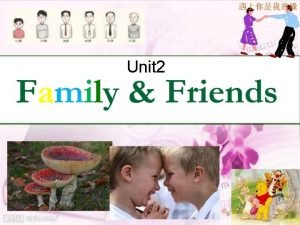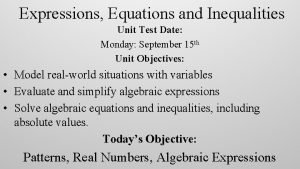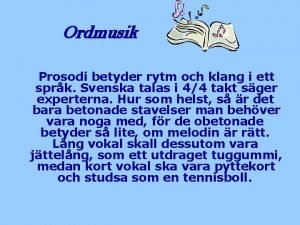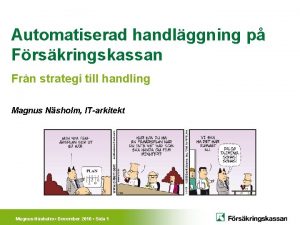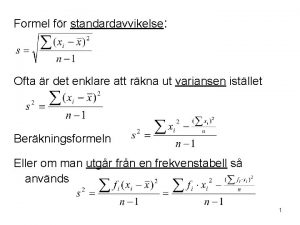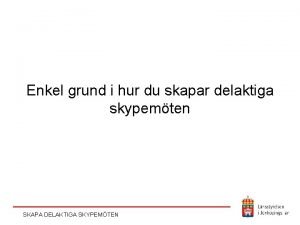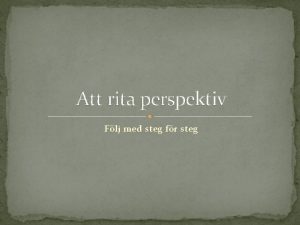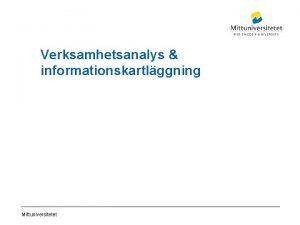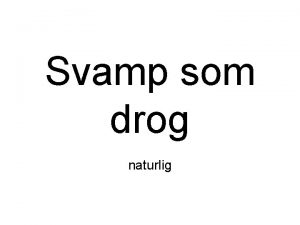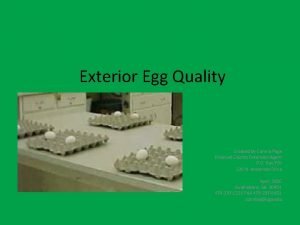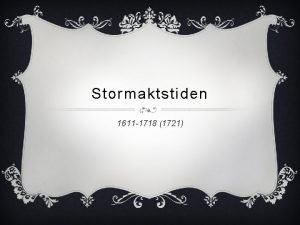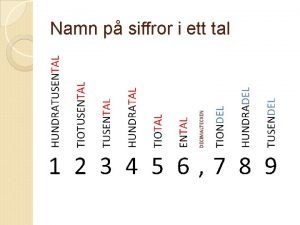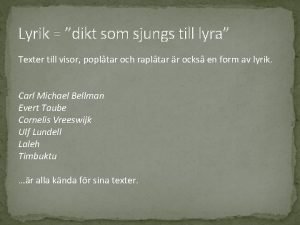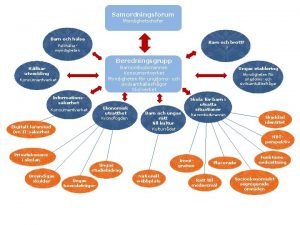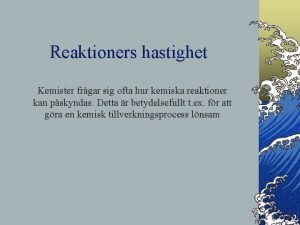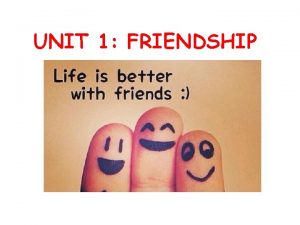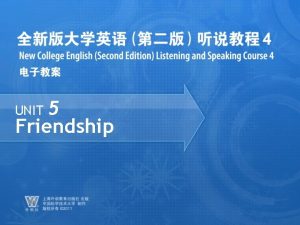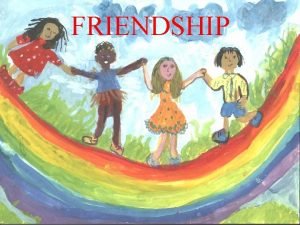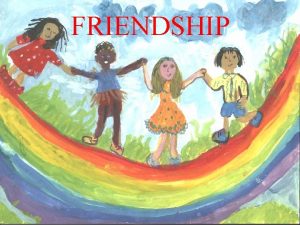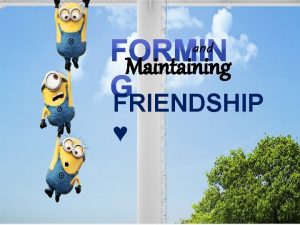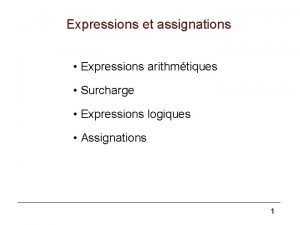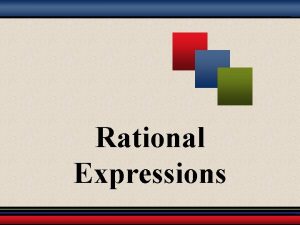Unit 6 Friendship New words and expressions for































![v interior: [countable usually singular] the inner part or inside of something v The v interior: [countable usually singular] the inner part or inside of something v The](https://slidetodoc.com/presentation_image/07c60a1d9d55265acdc9685826174f3f/image-32.jpg)




















![v crochet: [intransitive and transitive] v to make clothes etc from wool or cotton, v crochet: [intransitive and transitive] v to make clothes etc from wool or cotton,](https://slidetodoc.com/presentation_image/07c60a1d9d55265acdc9685826174f3f/image-53.jpg)







![v opening: [countable] a chance for someone to do or say something v His v opening: [countable] a chance for someone to do or say something v His](https://slidetodoc.com/presentation_image/07c60a1d9d55265acdc9685826174f3f/image-61.jpg)











- Slides: 72

Unit 6 Friendship

New words and expressions for Reading One: v virtue: Virtue is thinking and doing what is right and avoiding what is wrong. v She could have established her own innocence and virtue easily enough. v = goodness ≠ vice v virtuous: If you describe someone as virtuous, you mean that they have done what they ought to do and feel very pleased with themselves, perhaps too pleased. v I cleaned the flat, which left me feeling virtuous.

v divine: You use divine to describe something that is provided by or relates to a god or goddess. v He suggested that the civil war had been a divine punishment. v calculated: You can describe a clever or dishonest action as calculated when it is very carefully planned or arranged. v Irene’s cleaning the floor had been a calculated attempt to cover up her crime.

v misgiving: If you have misgivings about something that is being suggested or done, you feel that it is not quite right, and are worried that it may have unwanted results. v She had some misgivings about what she was about to do. . . v disreputable: If you say that someone or something is disreputable, you are critical of them because they are not respectable or cannot be trusted. v. . . the noisiest and most disreputable bars.

v reproach: If you reproach someone, you say or show that you are disappointed, upset, or angry because they have done something wrong. v She is quick to reproach anyone who doesn’t live up to her own high standards. . . v She had not even reproached him for breaking his promise.

v mortal: You can use mortal to emphasize that a feeling is extremely great or severe. v When self-esteem is high, we lose our mortal fear of jealousy. v presumption: A presumption is something that is accepted as true but is not certain to be true. v. . . the presumption that a defendant is innocent until proved guilty. . . v = assumption

humility: Someone who has humility is not proud and does not believe they are better than other people. v. . . a deep sense of humility. . . v ≠ pride v penalty: A penalty is a punishment that someone is given for doing something which is against a law or rule. v One of those arrested could face the death penalty. . . v The maximum penalty is up to 7 years imprisonment or an unlimited fine. v

v mechanism: A mechanism is a special way of getting something done within a particular system. v There’s no mechanism for punishing arms exporters who break the rules. v scarlet: Something that is scarlet is bright red. v. . . her scarlet lipstick.

Check Your Comprehension B v 1. Paragraph 1: Friendship comes naturally. Setting a price on it will never win you true friendship. v 2. Paragraph 2: We should remain humble before friendship and love. v 3. Paragraph 3: The warmth of friendship keeps reminding us that pure love without making any judgments is a richness of our nature.

Check Your Vocabulary v 1. Friendship does not rely on judgment. You may feel the goodness in a friend, but the goodness was acknowledged after you had made friends with him. v 2. If you only want those who possess good qualities to be your friends because you have good qualities, you are far from getting true friendship just as you can hardly build up true friendship if you are after friendship out of the motivation of gaining profits.

Check Your Vocabulary v 3. So if one knows what friendship really means, he would never put an end to it only because his friend happens to be lacking respectability in character. v 4. We should remain humble before friendship and love because we are granted this free gift. We should feel ashamed rather than pleased and happy when we are no longer humble because friendship and love are gone.

Check Your Vocabulary v 5. Our judgments and penalties have to be part of our life as we pay men and dress them in the court suit and let them be the judges to make judgments on other men.

New words and expressions for Reading Two: v boarding: Boarding is an arrangement by which children live at school during the school term. v. . . the master in charge of boarding. . . v Annual boarding fees are £ 10, 350.

v knot: If you feel a knot in your stomach, you get an uncomfortable tight feeling in your stomach, usually because you are afraid or excited. v There was a knot of tension in his stomach. v stoically: If you say that someone behaves in a stoical way, you approve of them because they do not complain or show they are upset in bad situations. (FORMAL) v She never ceased to admire the stoical courage of those in Northern Ireland. . .

v fiber: A fibre is a thin piece of flesh like a thread which connects nerve cells in your body or which muscles are made of. v. . . the nerve fibres. v spotless: Something that is spotless is completely clean. v Each morning cleaners make sure everything is spotless. . .

v ranch: A ranch is a large farm used for raising animals, especially cattle, horses, or sheep. v He lives on a cattle ranch in Australia. v houseparent: (由已婚者担任的)学生宿舍 管理员 v limp: not firm or strong v a limp handshake v His body suddenly went limp and he fell down on the floor.

v counselor: A counselor is a person whose job is to give advice to people who need it, especially advice on their personal problems. v scene: an embarrassing situation v go about: When you are going about your normal activities, you are doing them. v We were simply going about our business when we were pounced upon by these police officers.

v wrench: A wrench or a monkey wrench is an adjustable metal tool used for tightening or loosening metal nuts of different sizes. v like dirt: v (treat somebody) like dirt/a dog v = (treat someone) unkindly and without respect v I don’t know why he stays with her — she treats him like dirt.

v play catch: 作传球(接球)的游戏 v ram: If you ram something somewhere, you push it there with great force. v He rammed the key into the lock and kicked the front door open. v slug: informal to hit someone hard with your closed hand v tackle: an attempt to stop an opponent by forcing them to the ground, especially in American football or rugby v = punch

smash: If something smashes or is smashed against something solid, it moves very fast and with great force against it. v The bottle smashed against a wall. . . v He smashed his fist into Anthony’s face. v dissipate: When something dissipates or when you dissipate it, it becomes less or becomes less strong until it disappears or goes away completely. (FORMAL) v The tension in the room had dissipated. . . v He wound down the windows to dissipate the heat. v

chore: Chores are tasks such as cleaning, washing, and ironing that have to be done regularly at home. v My husband I both go out to work so we share the household chores. v beefs: pl. Slang a complaint v 【复数】 beefs【俚语】抱怨 v surrogate: You use surrogate to describe a person or thing that is given a particular role because the person or thing that should have the role is not available. v Martin had become Howard Cosell’s surrogate son. . . v

v relieve: If an army relieves a town or another place which has been surrounded by enemy forces, it frees it. v The offensive began several days ago as an attempt to relieve the town. v notify: If you notify someone of something, you officially inform them about it. (FORMAL) v The skipper notified the coastguard of the tragedy. . . v = inform

v kiss up to: to try to please someone in order to get them to do something for you — used to show disapproval [= suck up to British English] v If you say that, it’ll look like you’re kissing up to me. v mad: angry [not before noun] informal especially American English v Are you still mad at me? v We get mad at each other sometimes, like any family.

v ostracize: If someone is ostracized, people deliberately behave in an unfriendly way towards them and do not allow them to take part in any of their social activities. (FORMAL) v She claims she’s being ostracized by some members of her local community. v hide-out: [countable] a place where someone goes because they do not want anyone to find them

v wind up: If you wind up in a particular place, situation, or state, you are in it at the end of a series of actions, events, or experiences, even though you did not originally intend to be. v He could wind up in gaol. . . v Little did I know that I would actually wind up being on the staff. . . v Both partners of the marriage wound up unhappy. v = finish up, end up

v go for: If you go for a particular thing or way of doing something, you choose it. v People tried to persuade him to go for a more gradual reform programme. v twerp: If you call someone a twerp, you are insulting them and saying that they are silly or stupid. (INFORMAL) v = twit

v linger: If you linger somewhere, you stay there for a longer time than is necessary, for example because you are enjoying yourself. v Customers are welcome to linger over coffee until around midnight. . . v It is a dreary little town where few would choose to linger.

v briefly: Something that happens or is done briefly happens or is done for a very short period of time. v He smiled briefly. . . v Guerillas captured and briefly held an important provincial capital.

slash: If you slash at a person or thing, you quickly hit at them with something such as a knife. v He slashed at her, aiming carefully. v clunk: to strike something so as to make a dull sound 打击某物以发出沉闷声地 v halt: When a person or a vehicle halts or when something halts them, they stop moving in the direction they were going and still. v They halted at a short distance from the house. . . v She held her hand out flat, to halt him. v

v no sweat: spoken used to say that you can do something easily v ‘Are you sure you can do it on time? ’ ’Yeah, no sweat!’ v inhibition: Inhibitions are feelings of fear or embarrassment that make it difficult for you to behave naturally. v The whole point about dancing is to stop thinking and lose all your inhibitions. . .

v exterior: You can refer to someone’s usual appearance or behaviour as their exterior, especially when it is very different from their real character. v According to Mandy, Pat’s tough exterior hides a shy and sensitive soul. v = facade
![v interior countable usually singular the inner part or inside of something v The v interior: [countable usually singular] the inner part or inside of something v The](https://slidetodoc.com/presentation_image/07c60a1d9d55265acdc9685826174f3f/image-32.jpg)
v interior: [countable usually singular] the inner part or inside of something v The interior of the church was dark. v the car’s warm interior v ≠exterior v boxcar: A boxcar is a railway carriage, often without windows, which is used to carry luggage, goods, or mail. (AM; in BRIT, use van) 货车 v Yankees: (纽约)杨基棒球队

v string bean: String beans are long, very narrow green vegetables consisting of the cases that contain the seeds of a climbing plant. (AM; in BRIT, use French bean) v Slang A tall, thin person. v 【俚语】又高又瘦的人 v cornstalk: the stalk or stem of a corn plant v 玉米杆:玉米作物的杆或茎。

v diabetes: Diabetes is a medical condition in which someone has too much sugar in their blood. v kidney: Your kidneys are the organs in your body that take waste matter from your blood and send it out of your body as urine. v give way: v a) to be replaced by something else v give way to v Stone has given way to glass and concrete. v My anger gave way to depression.

v b) to agree to do what someone else wants, instead of what you want, especially after a lot of discussion or argument v Despite growing pressure, the Minister of State refused to give way. v give way to v Maria seemed to despise him for giving way to her. v c) to break because of too much weight or pressure v The floor’s rotten and likely to give way.

v d) British English to stop or slow down when you are driving, in order to allow other vehicles to go first [= yield American English] v In Britain, give way to cars coming from the right. v weighty: If you describe something such as an issue or a decision as weighty, you mean that it is serious or important. (FORMAL) v Surely such weighty matters merit a higher level of debate? v = serious, important

v hand out: If you hand things out to people, you give one or more to each person in a group. v One of my jobs was to hand out the prizes. . . v Could you start handing these books out please? v = give out, distribute

Check Your Comprehension B 1. Why did the mother decide to send the narrator to the boarding school? Because the narrator’s father died, and the mother believed that in a boarding school he was able to get the necessary education of disciplines and could have male role models to go after. v 2. What was the school like? The school was clean and of ranch style. There were 16 boys in the narrator’s section, with an apartment for their houseparents. And two boys shared one bedroom. v

Check Your Comprehension B v 3. Why did the narrator cry on his first day at the school? Because his roommate, Jim, asked him about his father. He was very unhappy when once again he had to face the fact that he lost his father and had to lead a life on his own.

Check Your Comprehension B v 4. What were the changes at the boarding school when the new houseparents, Mr. and Mrs. Carney came? The Carneys were not very strict with the boys. They were very kind. As a result of that, boys began to make use of the kindness of the Carneys. They didn’t do chores well any more, and spoke to the Carneys rudely.

Check Your Comprehension B v 5. Why did many other boys get mad at the narrator after the meeting? Because at the meeting, the narrator spoke for the Carneys and criticized those boys who took advantage of the kindness of the houseparents.

Check Your Comprehension B v 6. How did the four boys, Bruce, Jim, Lee, and the narrator, describe their dead fathers? Bruce’s father was a salesman and died in a traffic accident. Jim’s father was a schoolteacher and died of a heart attack. Lee’s father was a carpenter and died of bone cancer. The narrator’s father had diabetes and his kidneys failed, and that killed him.

Check Your Comprehension B v 7. Why didn’t the boys talk about their dead parents before? Why didn’t they keep photos of their dead parents? Because the boys would like to show that they were strong and tough guys and wouldn’t let the sad feeling overwhelm them. They hid their love for their fathers, though they missed their fathers every minute in the depth of their heart. They wouldn’t let their fathers’ pictures remind them of their happy memories of a family living together. The fact of losing the father is too cruel for them to face.

Check Your Comprehension B v 8. Why did the narrator form the feeling of brotherhood with other boys? Because they had the same life experience of losing a parent and had shared the sadness of the fact and had been able to understand the subtle feeling of love and being strong. From then on, they were able to support each other sincerely and love each other like brothers.

Check Your Vocabulary C v 1. So I never said anything to show my unwillingness of going to the boarding school, though all my senses could feel the reluctance of such a trip. v 2. I got to know later that the school’s counselor had asked my mother to leave unnoticed without saying goodbye to me in order to avoid the outburst of sad emotions.

Check Your Vocabulary C 3. Not only did we refuse to admit the feeling of missing our dead parents, but also the fact that they were with us before. And we kept it as a secret deep in our mind. v 4. The only thing we can complain about is that the Carneys are too good to us and some of you are making use of their goodness. v 5. Everyone thinks you were making up to the Carneys. Many boys are angry at your act of flattery. v

Check Your Vocabulary C 6. It was a place where the restraints and the outward aggressive appearance of being unwilling to compromise gave way to something subtle that started changing our behavior. v 7. Like the other boys, I also wanted to free myself of the burden I could no longer carry in mind. v 8. But we didn’t carry a photo of our dead fathers with us, and we even didn’t keep one in our rooms. Photos were generally regarded as something that could too easily remind us of the happy life we had spent with our dead parents; much happier and more normal than the life we had now. v

New words and expressions for Reading Three: v crush: If you have a crush on someone, you are in love with them but do not have a relationship with them. (INFORMAL) v She had a crush on you, you know. . . v bustle: A place that is bustling with people or activity is full of people who are very busy or lively. v The sidewalks are bustling with people. . . v The main attraction was the bustling market. v stoop: A stoop is a small platform at the door of a building, with steps leading up to it. (AM) v They stood together on the stoop and rang the bell.

v tinfoil: Tinfoil consists of shiny metal in the form of a thin sheet which is used for wrapping food. v = foil v galore: You use galore to emphasize that something you like exists in very large quantities. (INFORMAL, WRITTEN) v You’ll be able to win prizes galore. v. . . a popular resort with beaches galore.

v worn-out: Something that is worn out is so old, damaged, or thin from use that it cannot be used any more. v. . . the car’s worn out tyres. v lame: If you describe something, for example an excuse, argument, or remark, as lame, you mean that it is poor or weak. v He mumbled some lame excuse about having gone to sleep. . . v All our theories sound pretty lame. v = weak, feeble

v sting: If a part of your body stings, or if a substance stings it, you feel a sharp pain there. v His cheeks were stinging from the icy wind. . . v Sprays can sting sensitive skin. v tight: If money is tight, you do not have enough of it. v Money was tight and he needed a job badly. v As you know, I run the magazine on a pretty tight budget.

v glamour: Glamour is the quality of being more attractive, exciting, or interesting than ordinary people or things. v. . . the glamour of show biz(娱乐性行业, 演艺 事业) v glitz: [uncountable] the exciting, attractive quality which is connected with rich, famous and fashionable people v show business glitz v = glamour
![v crochet intransitive and transitive v to make clothes etc from wool or cotton v crochet: [intransitive and transitive] v to make clothes etc from wool or cotton,](https://slidetodoc.com/presentation_image/07c60a1d9d55265acdc9685826174f3f/image-53.jpg)
v crochet: [intransitive and transitive] v to make clothes etc from wool or cotton, using a special needle with a hook at one end v streak: If something streaks a surface, it makes long stripes or marks on the surface. v Rain had begun to streak the windowpanes. . . v His face was pale and streaked with dirt.

v retrieve: If you retrieve something, you get it back from the place where you left it. v The men were trying to retrieve weapons left when the army abandoned the island. v = recover v dampen: To dampen something such as someone’s enthusiasm or excitement means to make it less lively or intense. v Nothing seems to dampen his perpetual enthusiasm. . .

v vow: If you vow to do something, you make a serious promise or decision that you will do it. v While many models vow to go back to college, few do. . . v I solemnly vowed that someday I would return to live in Europe. . . v ‘I’ll kill him, ’ she vowed. . . v They have vowed a quick and decisive response.

Check Your Comprehension A v 1. How was Allie feeling when she heard the knock on the door? Hearing the knock on the door, Allie felt an outburst of emotions. She had been expecting Jane’s arrival for so long. And she prayed in the heart that it was Jane outside the door.

2. How did Allie become Jane’s best friend? At the Christmas party the two girls exchanged their gifts. After hearing the story of Jane’s gift, Allie was deeply moved and returned the precious gift to Jane. She also accompanied Jane back to home. After that, Allie and Jane began to develop their true friendship. v 3. Why was Jane unable to come to Allie’s party? Jane’s grandma was ill. And Jane had to take care of her. v

v 4. What did Allie decide to do after reading Jane’s note? Allie went to her bedroom and decided to phone her best friend, Jane. v 5. What did Jane and Allie vow to do for each other? They vowed to stay faithful to each other and be each other’s lifetime supporter.

v 6. In your own words, describe the relationship of Jane and Allie. Friendship came to Allie and Jane when they opened their minds. Both of them were loyal to friendship. They were both considerate and ready to meet the needs of the other person.

New words and expressions for Reading Four: v fantasize: If you fantasize about an event or situation that you would like to happen, you give yourself pleasure by imagining that it is happening, although it is untrue or unlikely to happen. v I fantasized about writing music. . . v Her husband died in 1967, although she fantasized that he was still alive.
![v opening countable a chance for someone to do or say something v His v opening: [countable] a chance for someone to do or say something v His](https://slidetodoc.com/presentation_image/07c60a1d9d55265acdc9685826174f3f/image-61.jpg)
v opening: [countable] a chance for someone to do or say something v His question left an opening for me to say exactly what I thought. v downstate: [only before noun] American English v in or from the southern part of a state v A downstate judge was called in to hear the case. v ≠ upstate

v barely: only with great difficulty or effort v She was very old and barely able to walk. v Mary had barely enough money to live on. v barely audible/perceptible/visible/discernible etc v His voice was barely audible. v She could barely understand English. v = only just

diner: A diner is a small cheap restaurant that is open all day. (AM) v chitchat: Chit-chat is informal talk about things that are not very important. v Not being a mother, I found the chit-chat exceedingly dull. v look over: If you look something over, you examine it quite quickly in order to get a general idea of what it is like. v They presented their draft to the president, who looked it over, nodded and signed it. . . v He could have looked over the papers in less than ten minutes. v

v spark: A spark of a quality or feeling, especially a desirable one, is a small but noticeable amount of it. v His music lacked that vital spark of imagination. . . v staircase: The stairwell is the part of a building that contains a staircase.

v serendipity: Serendipity is the luck some people have in finding or creating interesting or valuable things by chance. (LITERARY) v Some of the best effects in my garden have been the result of serendipity. v surefire: A sure-fire thing is something that is certain to succeed or win. (INFORMAL) v. . . a surefire best seller. v fuzz: a mass of short, curly hairs v When Jack was born he had a fuzz of black hair on his head.

New words and expressions for Section Three v wax: If you wax a surface, you put a thin layer of wax onto it, especially in order to polish it. v We’d have long talks while she helped me wax the floor. v comatose: A person who is comatose is in a coma. (MEDICAL) v The right side of my brain had been so severely bruised that I was comatose for a month.

v baby shower: 为刚生小孩的新当母亲者所举 行的送礼会 v stroller: A stroller is a small chair on wheels, in which a baby or small child can sit and be wheeled around. (AM; in BRIT, use pushchair) 手推童车 v collapsible: A collapsible object is designed to be folded flat when it is not being used. v. . . a collapsible chair. v = folding

v swing: If something swings or if you swing it, it moves repeatedly backwards and forwards or from side to side from a fixed point. v The sail of the little boat swung crazily from one side to the other. . . v She was swinging a bottle of wine by its neck. . . v Ian lit a cigarette and sat on the end of the table, one leg swinging.

julienned: cut into long, thin strips 切成条的; 切成丝 的 v julienned potatoes; julienned pork. v 土豆丝;猪肉条 v jerk: If you jerk something or someone in a particular direction, or they jerk in a particular direction, they move a short distance very suddenly and quickly. v Mr Griffin jerked forward in his chair. . . v ‘This is Brady Coyne, ’ said Sam, jerking his head in my direction. . . v Eleanor jerked her wrist free. . . v

v sprint: If you sprint, you run or ride as fast as you can over a short distance. v Sergeant Horne sprinted to the car. v stop on a dime: (American English) stop very quickly — used about cars v This truck can stop on a dime! v mauve: Something that is mauve is of a pale purple colour. v It bears clusters of mauve flowers in early summer.

v taupe: Something that is taupe is a pale brownish-grey colour. v bud: buddy spoken especially American English v Hey, bud, how’s it going?

Write down the main idea of the text here. Women need friendship. And the friendship is guided by some particular rules that are only shared and understood by women. Women have their own way of enjoying friendship. They are loyal to friends by giving a hand when needed, participating in happy moments and sharing their understandings about life.
 Phoneparta
Phoneparta Unit 6 words and expressions
Unit 6 words and expressions Virtual friendship and the new narcissism summary
Virtual friendship and the new narcissism summary Unit one friendship
Unit one friendship Unit 1 friendship
Unit 1 friendship Family and friends 2 tests
Family and friends 2 tests 1-1 variables and expressions answer key
1-1 variables and expressions answer key Equations and inequalities unit test part 1
Equations and inequalities unit test part 1 Expressions equations and inequalities unit test
Expressions equations and inequalities unit test Unit 1 introductory lesson 1- variables and expressions
Unit 1 introductory lesson 1- variables and expressions Unit 10, unit 10 review tests, unit 10 general test
Unit 10, unit 10 review tests, unit 10 general test Formuö
Formuö Typiska novell drag
Typiska novell drag Nationell inriktning för artificiell intelligens
Nationell inriktning för artificiell intelligens Vad står k.r.å.k.a.n för
Vad står k.r.å.k.a.n för Varför kallas perioden 1918-1939 för mellankrigstiden?
Varför kallas perioden 1918-1939 för mellankrigstiden? En lathund för arbete med kontinuitetshantering
En lathund för arbete med kontinuitetshantering Underlag för särskild löneskatt på pensionskostnader
Underlag för särskild löneskatt på pensionskostnader Tidböcker
Tidböcker A gastrica
A gastrica Förklara densitet för barn
Förklara densitet för barn Datorkunskap för nybörjare
Datorkunskap för nybörjare Tack för att ni lyssnade bild
Tack för att ni lyssnade bild Mall debattartikel
Mall debattartikel Autokratiskt ledarskap
Autokratiskt ledarskap Nyckelkompetenser för livslångt lärande
Nyckelkompetenser för livslångt lärande Påbyggnader för flakfordon
Påbyggnader för flakfordon Vätsketryck formel
Vätsketryck formel Publik sektor
Publik sektor I gullregnens månad
I gullregnens månad Presentera för publik crossboss
Presentera för publik crossboss Vad är ett minoritetsspråk
Vad är ett minoritetsspråk Kanaans land
Kanaans land Klassificeringsstruktur för kommunala verksamheter
Klassificeringsstruktur för kommunala verksamheter Luftstrupen för medicinare
Luftstrupen för medicinare Bästa kameran för astrofoto
Bästa kameran för astrofoto Cks
Cks Byggprocessen steg för steg
Byggprocessen steg för steg Bra mat för unga idrottare
Bra mat för unga idrottare Verktyg för automatisering av utbetalningar
Verktyg för automatisering av utbetalningar Rutin för avvikelsehantering
Rutin för avvikelsehantering Smärtskolan kunskap för livet
Smärtskolan kunskap för livet Ministerstyre för och nackdelar
Ministerstyre för och nackdelar Tack för att ni har lyssnat
Tack för att ni har lyssnat Referatmarkering
Referatmarkering Redogör för vad psykologi är
Redogör för vad psykologi är Matematisk modellering eksempel
Matematisk modellering eksempel Atmosfr
Atmosfr Borra hål för knoppar
Borra hål för knoppar Vilken grundregel finns det för tronföljden i sverige?
Vilken grundregel finns det för tronföljden i sverige? Beräkna standardavvikelse
Beräkna standardavvikelse Tack för att ni har lyssnat
Tack för att ni har lyssnat Steg för steg rita
Steg för steg rita Vad är verksamhetsanalys
Vad är verksamhetsanalys Tobinskatten för och nackdelar
Tobinskatten för och nackdelar Toppslätskivling dos
Toppslätskivling dos Handledning reflektionsmodellen
Handledning reflektionsmodellen Egg för emanuel
Egg för emanuel Elektronik för barn
Elektronik för barn Vad kallas den mantel som bars av kvinnor i antikens rom
Vad kallas den mantel som bars av kvinnor i antikens rom Strategi för svensk viltförvaltning
Strategi för svensk viltförvaltning Kung dog 1611
Kung dog 1611 Humanitr
Humanitr Romarriket tidslinje
Romarriket tidslinje Tack för att ni lyssnade
Tack för att ni lyssnade Mindre än tecken
Mindre än tecken Haiku dikt exempel
Haiku dikt exempel Inköpsprocessen steg för steg
Inköpsprocessen steg för steg Rbk-mätning
Rbk-mätning Etik och ledarskap etisk kod för chefer
Etik och ledarskap etisk kod för chefer Omprov cellprov
Omprov cellprov Myndigheten för delaktighet
Myndigheten för delaktighet Frgar
Frgar

